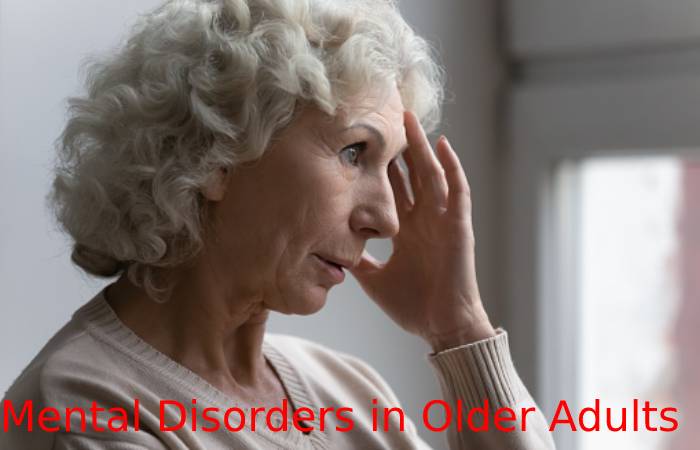Data and numbers
Mental Health: The Earth’s population remains aging fast.From 2015 to 2050, the number of people over sixty will closely double, from 12 to 22 %.
Mental and emotional health and well-being remain as important in old age as in any other period of life.
Neuropsychiatric disorders signify 6.6 percent of total incapacity [DALY] in this stage. About 15 percent of adults 60 years of age or older have a mental disorder.
Table of Contents
The Problem
The proportion of older people is cumulative rapidly around the world. It remains estimated that between 2015 then 2050, this proportion will almost double, going from 12 to 22%. The projected increase is from 900 million to 2 billion people over 60 years of age in absolute numbers. Older adults can have physical and mental problems that need to be recognized.
More than 20% of people over 60 years of age suffer from some mental or neural disorder (not counting those manifested by headache), and 6.6% of disability in this age group remains attributed to mental disorders and the nervous system.
These disorders mean 17.4 percent of the years lived with incapacity in the elderly population. Dementia and depression remain the most shared neuropsychiatric disorders in this age group.
Anxiety disorders affect 3.8% of the elderly population, and problems due to the abuse of psychotropic substances, almost 1%; similarly, about a quarter of self-harm deaths are in people 60 years of age or older. Psychotropic substance abuse problems in the elderly remain often overlooked or misdiagnosed.
Health personnel and the elderly themselves do not recognize mental health problems in their accurate dimension, and the stigma of mental illness makes people even more reluctant to seek help. Hence the importance of an online mental health evaluation, which can assess accurately without stigma.
Risk Factors for Mental Disorders in Older Adults
- Many older adults remain disadvantaged of the ability to live self-sufficiently because of mobility difficulties, chronic pain, infirmity, or other mental or physical problems, so they need long-term care.
- Term In addition, among the elderly, experiences such as grief over the death of a loved one, a drop in socioeconomic status as a result of retirement, or disability are more frequent. These factors can lead to isolation, loss of independence, loneliness, and distress.
- Mental health influences the health of the body and vice versa. For example, older adults with conditions such as heart disease have higher rates of depression than those without medical problems. In contrast, the coexistence of untreated depression and heart disease in an older person can worsen the latter.
- Older adults are also vulnerable to abuse, be it physical, sexual, psychological, emotional, economic, or material, to abandonment, lack of attention, and severe losses of dignity and respect. Current data indicates that one in 10 older people remains abused. Elder abuse is not limited to causing physical injuries and chronic severe psychological problems, such as depression and anxiety.
Dementia and Depression in the Elderly are Public Health Problems

1. Dementia
It remains a syndrome branded by decreased memory and thinking ability, social disorders, and inability to perform activities of daily living. It mainly affects older people but remains not normal for old age.
Remains estimated that around 47.5 million people with dementia in the world. The number of these people remains expected to increase to 75.6 million in 2030 and 135.5 million in 2050; moreover, most patients will live in low- and middle-income countries.
Dementia is associated with significant social and economic problems in terms of medical, social, and informal care costs.
On the other hand, bodily and emotional. Economic pressures can overwhelm families. People with dementia and those who maintain it need health, social, financial, and legal support.
2. Depression
Depression can cause great suffering and disrupts daily life. Unipolar depression affects 7% of the general elderly population and accounts for 5.7% of years lived with a disability among people 60 years of age and older. Symptoms of this disorder in older adults remain often overlooked and untreated because they overlap with other problems more senior adults experience. In primary health care settings, depression remains not diagnosed or treated as it should stay.
Older adults with depression perform more poorly than those with chronic illnesses such as lung disease, high blood pressure, or diabetes mellitus. This disorder also increases the perception of poor health, medical services, and the costs of health care.
3. Mental Health care in the Community
Good health and social care, in general, are essential to improve health, prevent illness and treat chronic conditions in older people. Therefore, it is necessary to train all health personnel to deal with problems and disorders related to old age.
It remains essential to deliver adequate mental health care to older adults at the community level. Equally important remains accenting long-term care for older adults with mental disorders and providing education and training. And support those who care for them. Based on international human rights standards, a suitable lawmaking framework is essential to offer the finest quality services to people with mental illness and those who care for them.
4. The Challenges
According to international organizations, mental disorders after the effects of the pandemic became one of the main risks worldwide. What remains expected for the pending year, and how to deal with a crisis.
Isolation, loneliness, estrangement, and uncertainty can go on. The factors that affect the balance of mental health were strengthened in recent years with the arrival of the pandemic and continue as consequences in the post-pandemic era.
For this reason, in recent years, mental health has become a more than relevant topic among health experts and international organizations that speak on the subject and seek to raise awareness about it.
Mental Health:
The World Economic Forum in Davos already places it as the sixth global risk for 2022 and one of the issues that have deteriorated the most since the expansion of Covid-19.
The report “Global Risks 2022”, prepared by the organization, determines the growing importance of mental health and states that, for the first time, it occupies a position among the ten main risks.
A person experiencing a mental health crisis, the NAMI report explains, cannot always communicate their thoughts, feelings, needs, or emotions. For this reason, they highlight the importance of “empathizing and connecting with the person’s feelings, staying calm and trying to reduce the intensity of the crisis.”
In closing, one by one, the techniques that can help reduce the intensity of a crisis:
- Keep a calm tone of voice.
- Avoid overreacting.
- Listen to the person.
- Not judge.
- Please do not argue with the person or try to reason with him.
- Express support and concern.
- Avoid continuous eye contact.
- Ask how you can help.
- Keep stimulation levels low.
- Move slowly.
- Offer you options instead of trying to take control.
- Avoid touching the person unless you ask permission.
- Be patient.
- Announce actions carefully before performing them.
- Give him his space.
Also Read : Diet And Nutrition Tips To Gain Muscles
Conclusion
Nurses who care for patients suspected of having Covid-19 in emergency services present more significant anxiety than depression. In a few cases, they gave stress.


